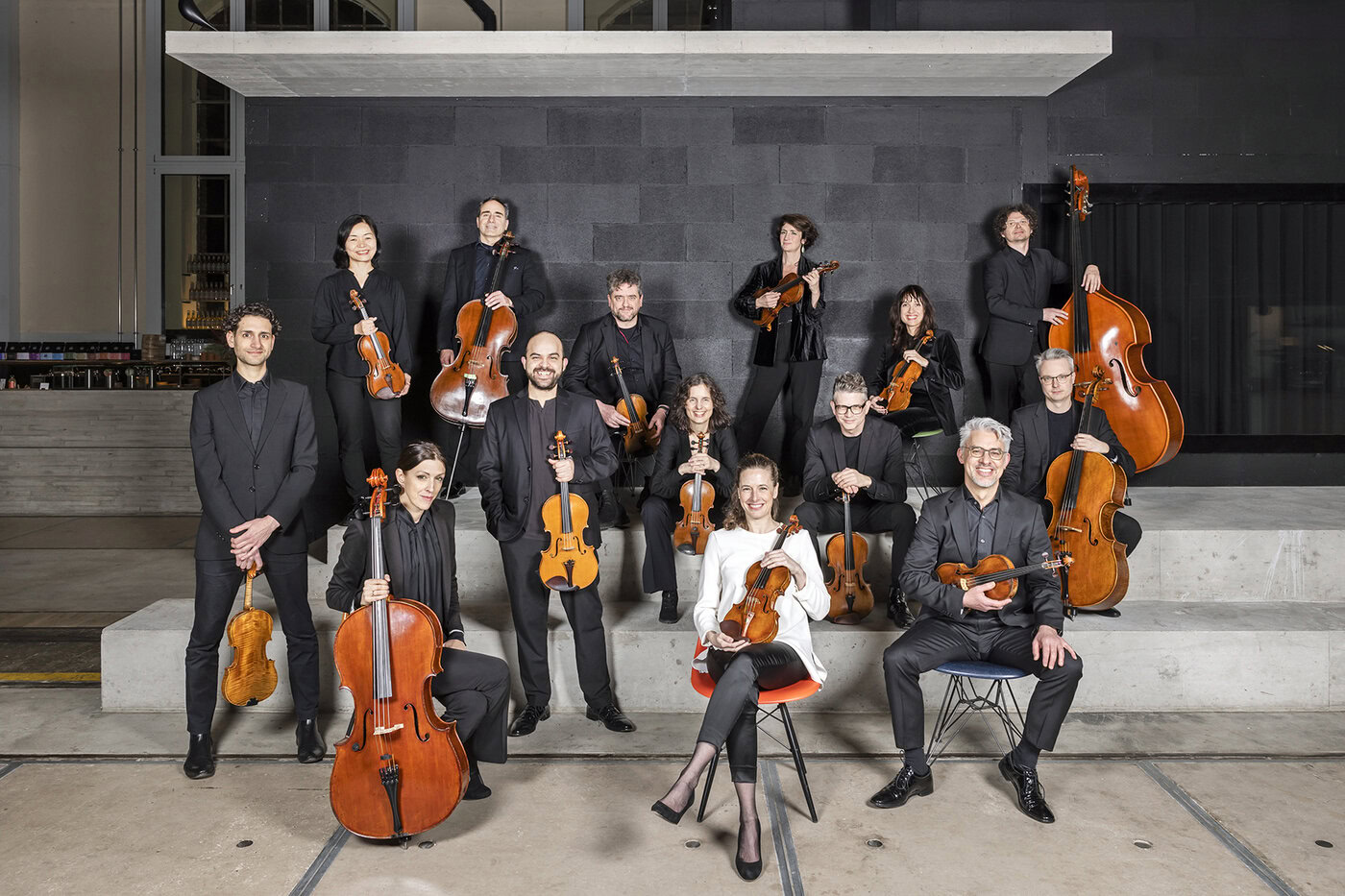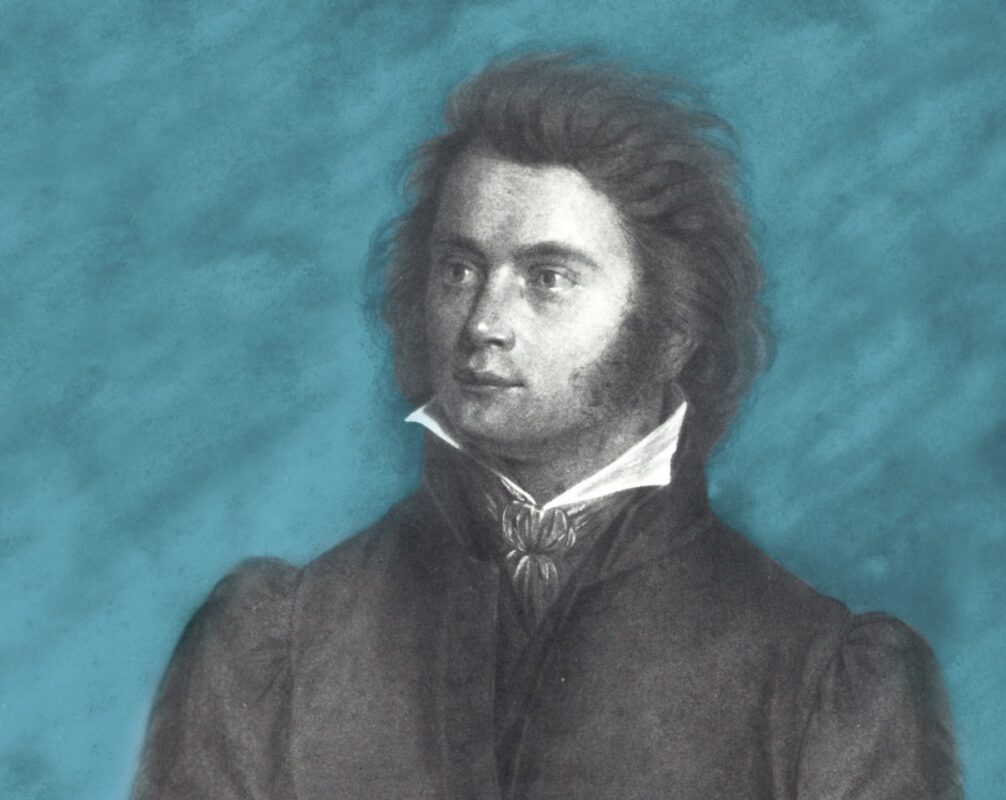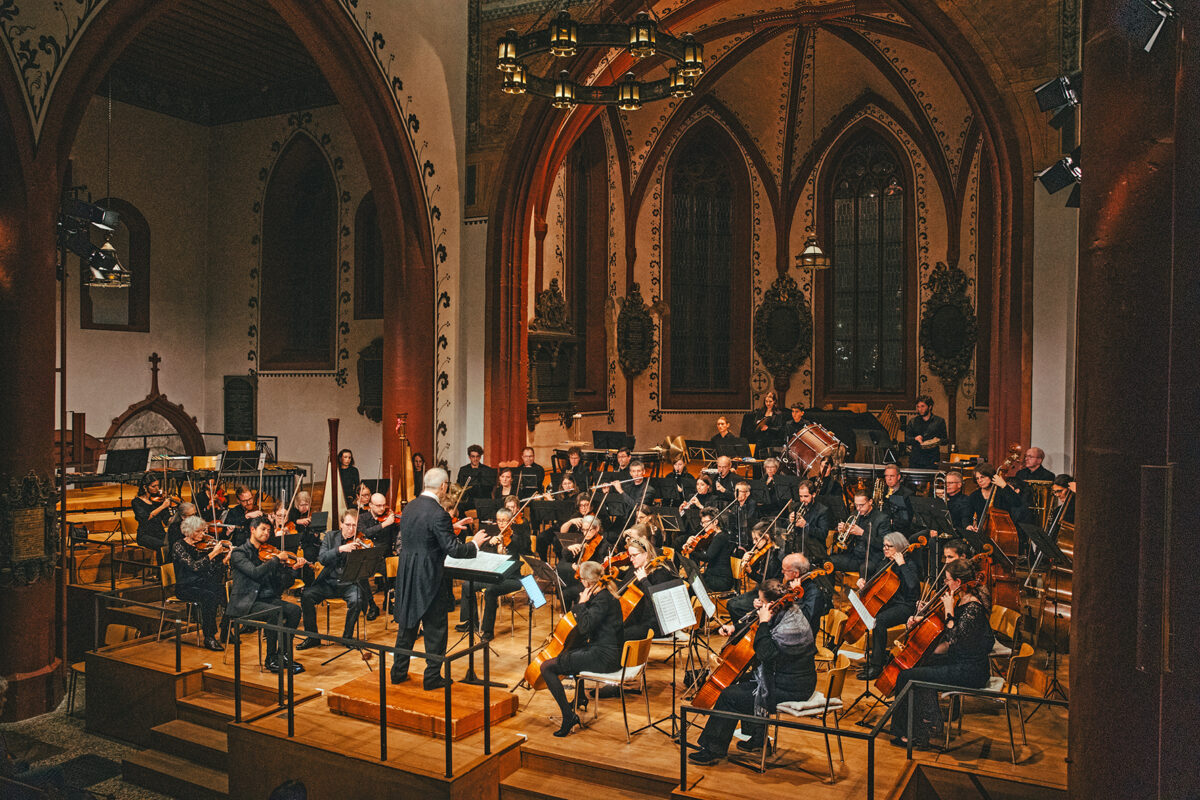First season with Esther Hoppe
A few weeks ago, the Swiss violinist took over as artistic director of Camerata Zürich. The ensemble is also trying something new in other respects, but is sticking to the tried-and-tested program and management model.

The fifteen string players in the small hall of the Tonhalle Zurich (with the exception of the cellists) confidently play standing up, while the artistic director coordinates the musical action from the first podium. Esther Hoppe gives a brief explanation before each of the four works played. While the homogeneous string sound of the Camerata Zürich can be admired in the introductory Schubert dances and Franz Schreker's Intermezzo op. 8, Hindemith's Four temperaments and Haydn's Piano Concerto in G major Ronald Brautigam as a versatile pianist. However, Hoppe's performance could be a little freer, and the position of the grand piano, where you can only see the pianist's back, is not very audience-friendly.
The selection of works for this second subscription concert is typical of the Camerata's program: contemporary (in the broadest sense) mixed with classical music, rarities combined with repertoire pieces. If you look at the season as a whole, you will notice that Swiss composers also play an important role. Esther Hoppe's debut concert in September featured Othmar Schoeck's Summer night opened. Since the ensemble was founded in 1957 by Räto Tschupp, contemporary and Swiss music have been among the constants of the programming. In terms of the repertoire, Hoppe is therefore following in the Camerata's tradition. When it comes to contemporary music, she takes particular care to ensure that it is well integrated into the rest of the program. In the fifth subscription concert, for example, Alfred Zimmerlin's Tides of time Mendelssohn's "Swiss Symphony".
Closer to the audience
The moderation of the concerts by Hoppe himself and selected members of the ensemble is a remarkable innovation: the orchestra wants to step out of anonymity and have a face. The newly created podcast series on the website, which aims to establish a relationship between the ensemble and the audience, aims in the same direction. The appointment of an artist in residence is not entirely new: this season it is Ronald Brautigam, one of the few pianists who play both the modern grand piano and the fortepiano. Hoppe also forms a piano trio with Brautigam and her husband Christian Poltéra. There are also new developments in music education: Following the Saturday subscription concerts, there will be children's concerts for four to ten-year-olds on Sunday mornings, where Evamaria Felder will playfully introduce the kids to one of the works performed. The "Camerata@School - Vivaldi Recomposed" project runs throughout the season, in which a school class from the city of Zurich performs one of Vivaldi's works. Four seasons develops and performs a concert program.
Making music on your own responsibility
Esther Hoppe was born in Zug, but is not (yet) so well known in this country because a large part of her career to date has taken place abroad. After an initial phase in Switzerland, including with the Tecchler Trio, which she founded, she became first concertmaster of the Munich Chamber Orchestra in 2009. Since 2013, she has held a professorship for violin at the Mozarteum University Salzburg. She also performs internationally as a soloist. What Hoppe likes about her new role with the Camerata is being able to create programs that suit the orchestra. The ensemble is also a manageable size.
Even under Hoppe's predecessors Thomas Demenga and Igor Karsko, the Camerata practised the model of non-conducting artistic direction: "Without a conductor, everyone in the orchestra has to know exactly what their role is. It is music-making that is oriented towards chamber music." Hoppe accepts that this model requires a little more rehearsal work because it promotes the members' personal responsibility.
Limited resources
And what about the competition with the Zurich Chamber Orchestra, which plays a dominant role in Zurich and has an internationally renowned violinist in Daniel Hope as its conductor? Esther Hoppe takes a relaxed view: "I don't see the two orchestras as competitors. The Camerata Zürich has a very clear artistic profile and deliberately moves away from the classical mainstream. In their differences, the two ensembles complement each other and enrich the city's musical life." Financially, however, the stakes are not the same. The Camerata's annual budget is in the mid six-figure range. Nevertheless, self-financing has increased to 40 percent in recent years. Subsidies from the city of Zurich currently amount to 380,000 francs. It is remarkable that, with these limited resources, the Camerata's artistic profile is still quite ambitious.








